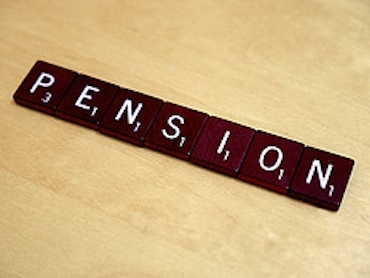The latest official wage growth figures published today by the ONS means the state pension should hit £11,501 in April 2024, a 8.5% rise, up from £10,600 this year.
That's a weekly rise in the new state pension from £203.85 to £221.17.
Meanwhile the old state pension will increase from £156.20 per week to £169.50 per week, assuming today’s earnings growth figure is used for the triple lock.
Helen Morrissey, head of retirement analysis at Hargreaves Lansdown said: “We always thought inflation would be the key factor when it came to the triple lock, but soaring wages look set to outstrip it, with annual wage growth of 8.5%.”
She said inflation has proved unpredictable and could rise again ahead of next month, but with it currently standing at 6.8% “it would need to be a truly enormous rise to outstrip what we are seeing here.”
She said that such an increase will continue to be a headache for government who need to battle the ever-spiralling cost of the state pension bill.
The Prime Minister recently refused to be drawn as to whether he would support the triple lock long term though as a general election draws ever closer it would be a difficult pledge to step back from.
Had the new state pension increased in line with either inflation or wages since 2011, it would be worth around £180 per week today – meaning the triple lock policy has added an extra £11bn a year to public spending, according to the Institute for Fiscal Studies.
Tom Selby, head of retirement policy at AJ Bell, said: “The protection provided by the triple-lock is extremely valuable. Had the new state pension been linked to the highest of average earnings and inflation – rather than having a 2.5% underpin – it would be worth around £180 a year rather than over £200 a year today.”
He predicted that by 2050, the triple lock policy could see state pension spending rise by anything between £5bn and £45bn a year in today’s terms.
Ms Morrissey said: “A review of the long-term direction of the state pension and the triple lock’s role should be a priority for whoever wins the next election.”
Mr Selby said: “Sadly, there is currently a vacuum of sensible debate on the state pension, with the triple-lock essentially used as a totem for ‘doing right by older people’. It may require another independent review of the state pension to break this cycle and build the foundations of a consensus on what the state pension should look like over the long-term.”
Steve Webb, partner at LCP and former Pensions Minister said: “In terms of the triple lock policy, with a general election in the offing it seems quite inconceivable that the Government would choose to break the triple lock promise for a second time in three years. Such a decision would be like aiming a laser-guided missile at the core of Conservative support and could fatally undermine the party’s electoral prospects.”

